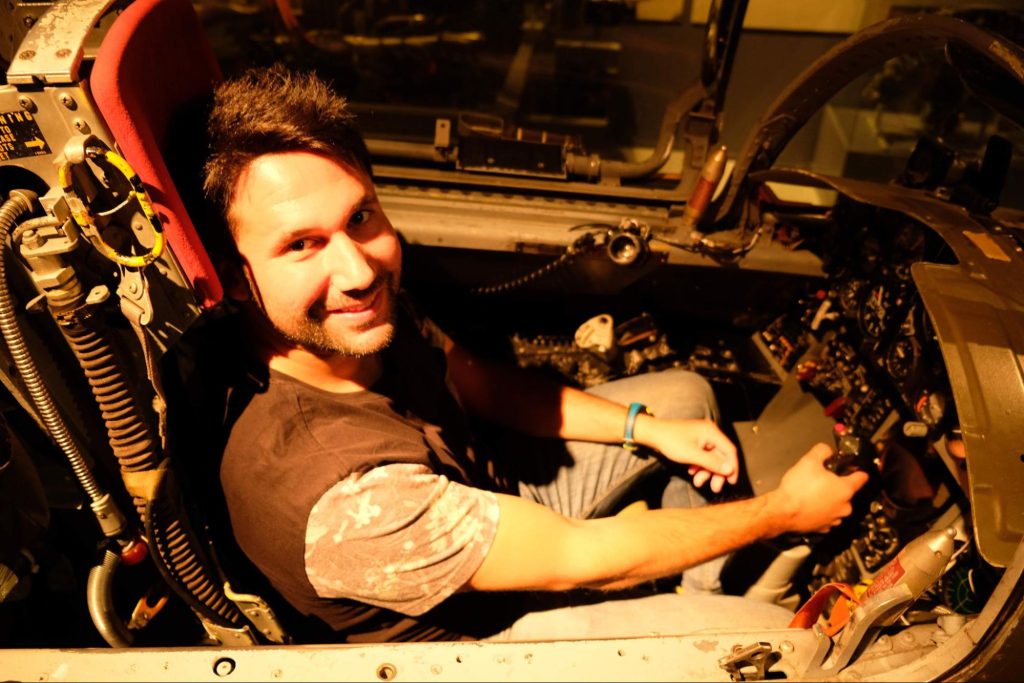Addressing the current challenges in healthcare requires more than just technological solutions. Real, positive change comes from the dedicated individuals working behind the scenes, committed to pushing boundaries and driving progress. In this week’s spotlight, we introduce Jose, the Lead Data Scientist at Orbit, as part of our Meet the Orbiters series.
Q: Why did you decide to join Orbit?
In my career, I always look for a balance between fun and meaning and Orbit provides me with both. If I am going to spend hours of my life working, I might as well enjoy it. For me, I like learning about AI and building new deep-learning models; hours always seem to fly by whenever I do. In recent years, there has been an explosion of AI tools ranging from generating funny videos to solving complex problems. While I cannot deny the potential benefits of AI applications, I’d be remiss not to admit that I am at least a bit concerned about how all this will impact our daily lives and whether it will help us build a better society.
At Orbit, I have the opportunity to continue building my Machine Learning skills and make a positive impact. Having meaning in my work has always been important to me and in this role, I get to do just that and as an added bonus, I get to collaborate with a highly dynamic international team, broadening my understanding and perceptions of the world.
Q: Since joining Orbit, what is something that surprised you about Parkinson’s or chronic diseases in general?
At the user level, patients are much more engaged than with other products I have worked on in the past. They are very keen on giving feedback, they want to be involved and be part of the solution. As a developer, this is awesome because it helps you build better products. With regards to PD, I’ve come to realize just how little I know. It astounds me how difficult it is to diagnose and the vast range of symptoms.
Q: What makes you excited to come to work every day?
As I said before, it’s the feeling that we are pushing the boundaries of technology and making a positive impact on people’s lives.
Q: Talking about “pushing the boundaries” (Q3)…what do you think is the key to innovation?
I think it is very important to balance academia and industry, to do applied research. As an example, the latest breakthrough in Artificial Intelligence (i.e. Large Language Models (LLMs) and Diffusion Models) would not be possible without collective research. The foundation, the math behind it, was established within academia and it was the private sector that put the theory into practice with greater resources.
I took my time in academia, building a sound foundation in math, physics, signal processing, and statistics. I come from the old Machine Learning school and I learned the classical approaches and the theories “under the hood”. In the past, I’ve built my own Neural Networks from scratch before libraries and packages were available. I have learned how to do proper research and when I was confident enough, I moved to the industry where I knew I could transfer my knowledge and innovate.
Q: Can you tell us more about your background in digital health?
For my PhD, I developed a telecare monitoring system for elderly people based only on the electrical consumption of a household. The novelty is that the system did not require any sensor installation as maintaining sensors at a large scale is always a problem. Thus, we leveraged the massive roll-out of smart meters at that time to non-intrusively collect the electrical consumption within households. Then, using Machine Learning techniques we were able to break down the total consumption into individual appliances and, from there, infer people’s lifestyle. For instance, we were able to tell when people were having their meals and even how well they slept. The system allowed caregivers and relatives to have a better understanding of how their loved ones were doing at home. Caregivers could then provide better support and intervene sooner when necessary – for instance if they were consistently skipping breakfast or if they had left the oven unattended. The beauty of it was that the person did not feel observed as there were no sensors in the house.
Later on, I joined a Startup whose core technology was breaking down the total consumption of individual appliances, and I helped them build the telecare monitoring technology on top of it.
Q: What is the one thing you can’t live without and why?
My mountain bike. It is a bit outdated but it takes me far from the city and into nature where I can switch off from all the noise and worries. I kind of enter a meditation mode and take perspective of my life.
Q: What is something you spend too much time or money on but don’t regret?
I like traveling and do not regret spending money on tickets because I know the experience will make up for that. Although I must confess, I am bad at planning ahead and usually end up spending more than I should in last-minute bookings.
Q: If you could only eat one food for the rest of your life what would it be?
“Pescaito frito” (deep fried fish)… but it must be in a “chiringuito” by the beach and accompanied by a good cold beer and friends 🙂
Meet the Orbiters – José is part of our Meet the Orbiters, a series dedicated to highlighting Orbit team members. To learn why they joined Orbit, what they think is unique about the culture, and some fun facts along the way. Find new amazing opportunities on our LinkedIn Page and to learn more about Orbit and our digital solutions, check out our website today. Don’t forget to follow us on Medium and LinkedIn for future updates and articles.



